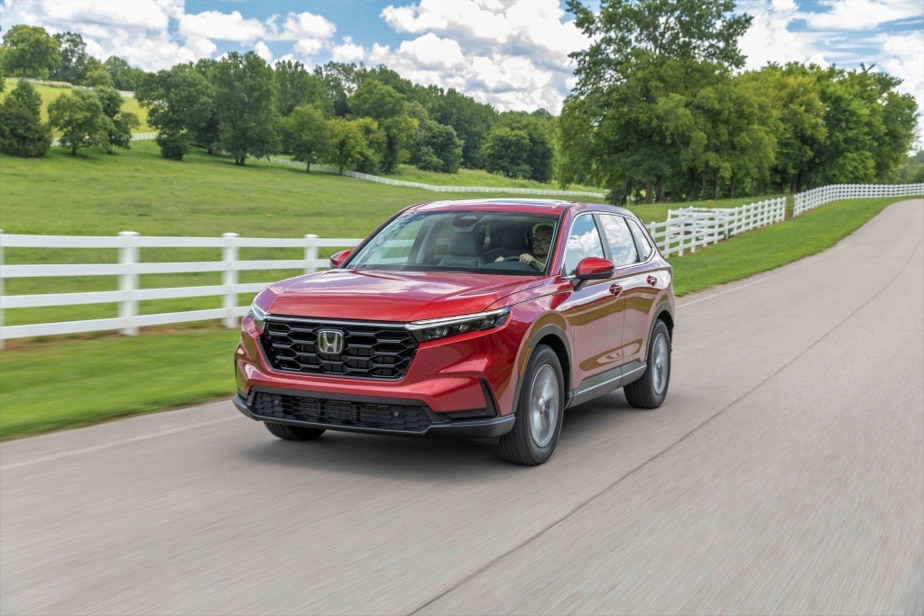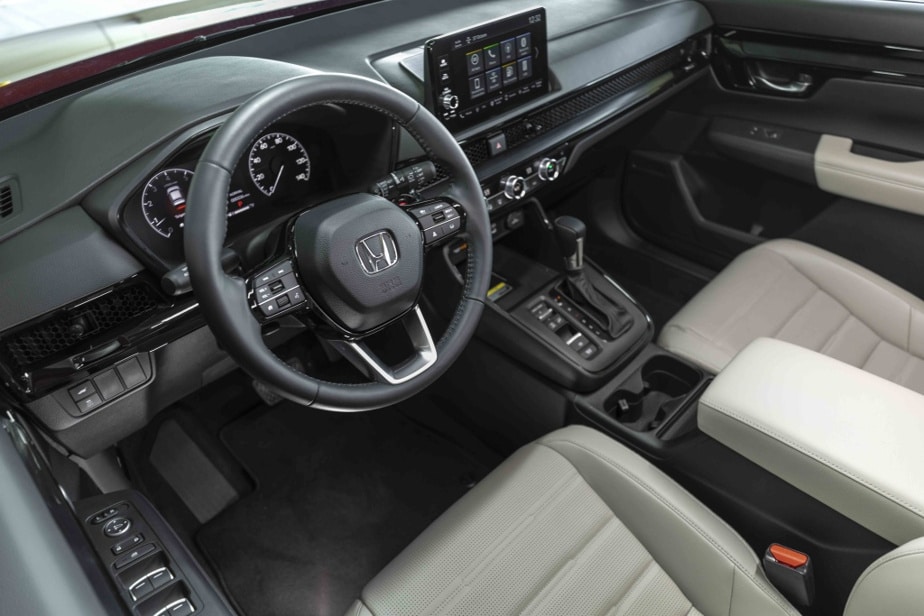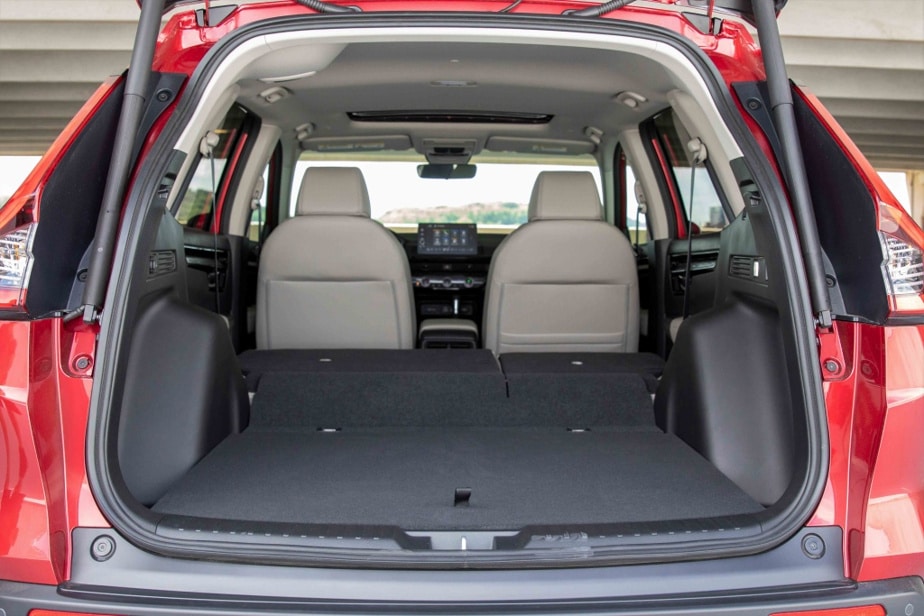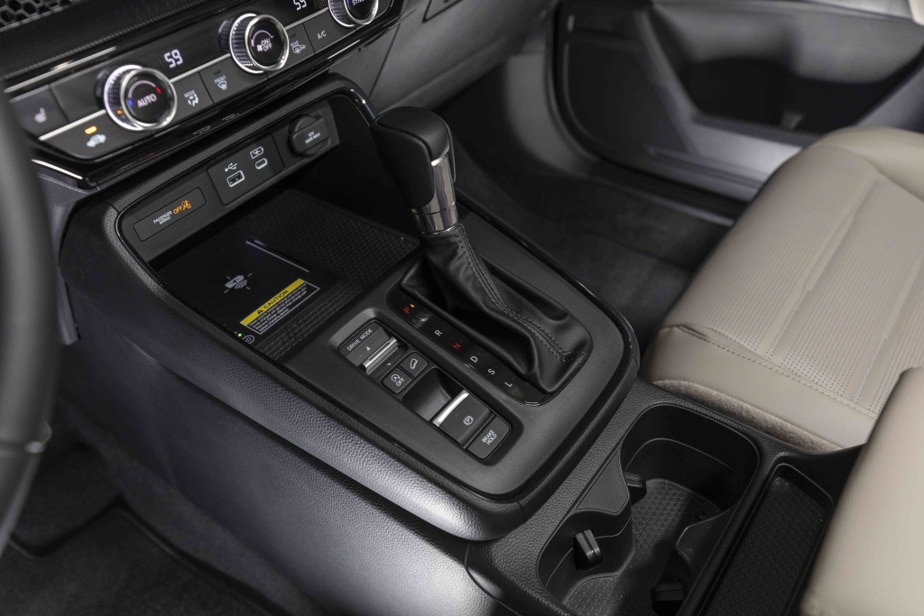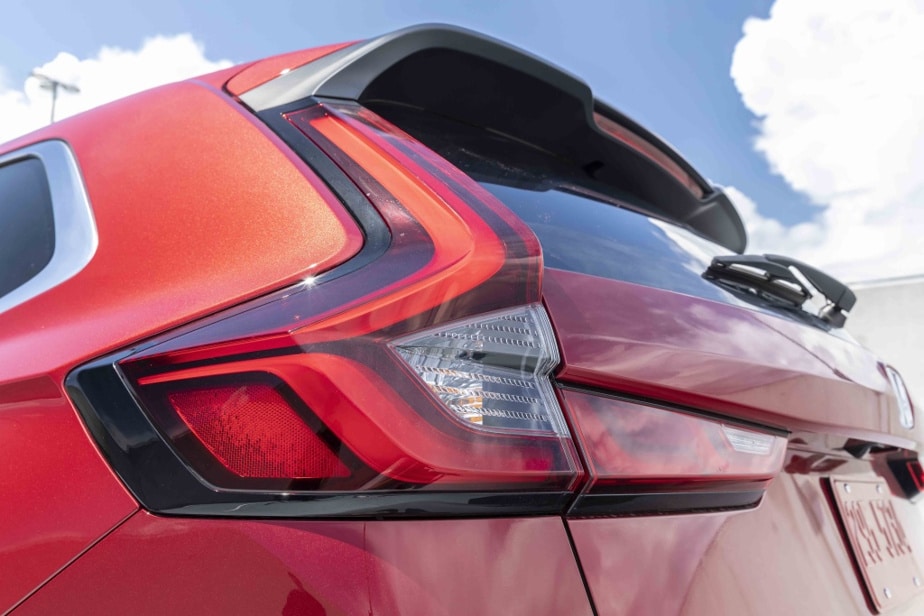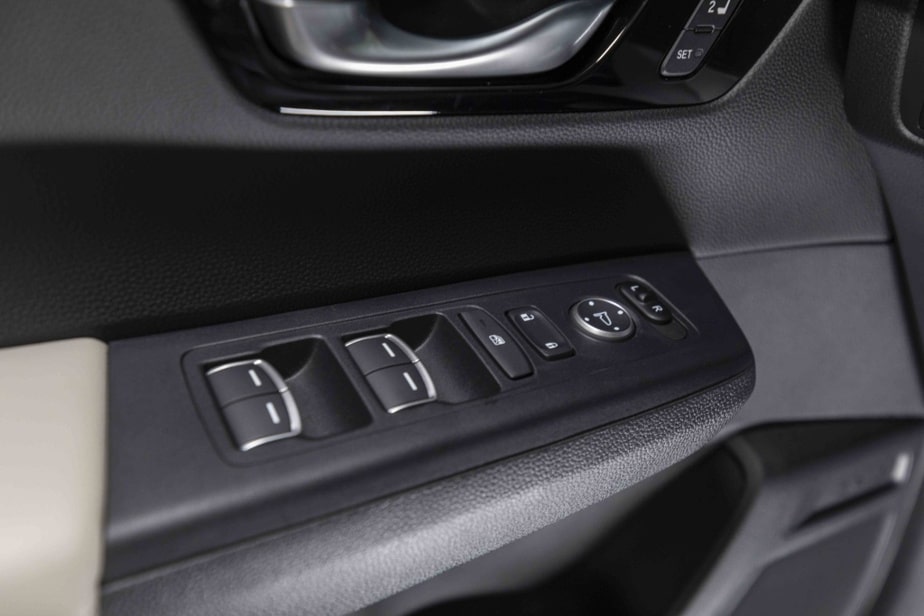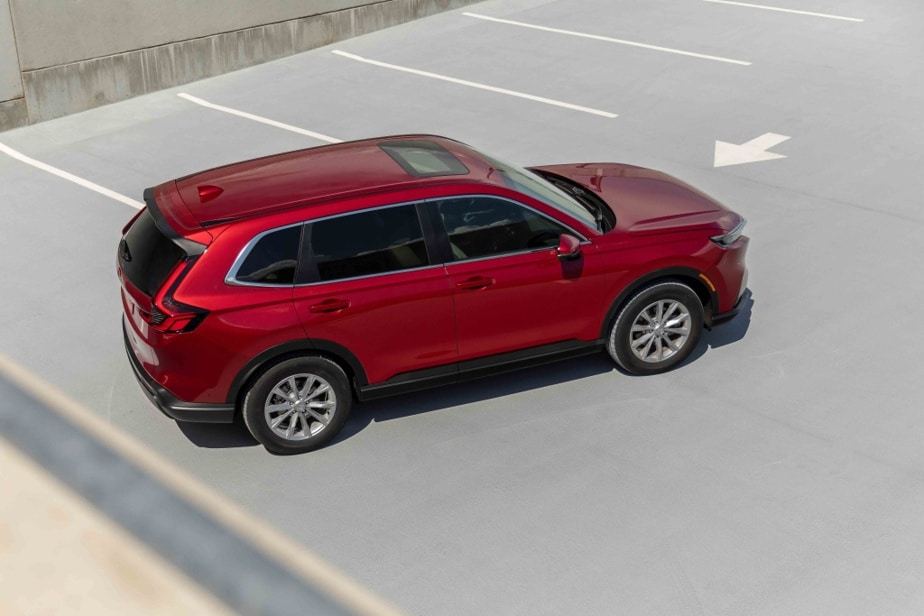Honda CR-V: we know the recipe

Contents
The Imperfect Giant
The sixth generation of the CR-V does not shake things up. Hard to reinvent itself too. Why would he? Doesn’t it always have a more advantageous size/habitability ratio, a more lustrous reliability record and a virtually stainless residual value? Yes, but the competition is growing rapidly. And this Honda unfortunately does not pay enough attention to it.
It’s been a long time since he carried his spare wheel slung over his shoulder, his rear door no longer swings on the curb side or a picnic table hidden under the floor of his trunk. The CR-V has changed. And better, will not fail to welcome the strategists of Honda. The CR-V sits comfortably – along with Toyota’s RAV4 – atop the best-selling models on the planet. Today, almost 30 years later, the seventh of the name seems to be at the antipodes of its original positioning. This self-proclaimed “recreational” vehicle is considerably longer than the initial model, has grown significantly in size and looks like a traditional family SUV. And it is also much more expensive.
-
PHOTO PROVIDED BY HONDA
The alert and precise direction, coupled with a front axle not heavy for a penny, makes driving pleasant. Never mind, the CR-V has completely lost the little extra soul that characterized it.
-
PHOTO PROVIDED BY HONDA
At the front, the seats are still just as comfortable for long-distance travel and the ergonomics of the controls do not attract any particular criticism.
-
PHOTO PROVIDED BY HONDA
The trunk (when the bench seatbacks are folded down) has a larger volume than that of the previous generation.
-
PHOTO PROVIDED BY HONDA
The engine is a supercharged 1.5L four-cylinder attached to a continuously variable automatic transmission (CVT) with impeccable performance.
-
PHOTO PROVIDED BY HONDA
Detail of the rear part of the Honda CR-V
-
PHOTO PROVIDED BY HONDA
Honda CR-V interior detail
-
PHOTO PROVIDED BY HONDA
The original CR-V was much more sparkling than this very conventional utilitarian which today strives not to appear starchy.
1/7
Frankly, previous generations had already started the movement. But discovering the latest version, we can not restrain a puff of disappointment tinged with nostalgia. The original CR-V was much more sparkling than this very conventional utilitarian which today strives not to appear starchy.
Dull SUV
The first contact with this “new” product from Honda will therefore have been a bit rough. Things started to settle down after a few kilometres. The CR-V then appears less clumsy than one might have feared. The alert and precise direction, coupled with a front axle not heavy for a penny, makes driving pleasant. Never mind, the CR-V has completely lost the little extra soul that characterized it – and set it apart from the competition.
The new CR-V gains in comfort, but remains less agile and more prone to rolling. The turning circle pleasantly surprises, as does the level of soundproofing, once the Achilles heel of this model.
The consumer has a choice of drive mode (two- or four-wheel drive), but not the powertrain. This one, unique to all configurations except the hybrid version, is an old acquaintance: a supercharged 1.5L four-cylinder attached to a continuously variable automatic transmission (CVT). The latter, with impeccable performance, is undoubtedly the most pleasant currently on the market. That said, the engine and transmission don’t progress if peak torque kicks in a bit sooner. Few consumers will appreciate (and detect) this difference.
In its four-wheel-drive configuration (popular, but even more expensive), the CR-V still proves unsuitable for crossing ruts (especially with its standard tires). On the other hand, it adapts rather well to slippery, even snowy, road surfaces. In this regard, note the revised algorithm of the part-time all-wheel drive, which now sends 50% of the torque (10% more than before) to the rear axle.
A bit heavier, the latest-generation CR-V doesn’t burn less gas, accelerate faster or brake better than its predecessor. Where is the progress ?
And how to justify the already full-bodied addition of this vehicle? The CR-V rises and gradually deserts its traditional category to position itself in a more elitist category and, no doubt, also, financially more profitable. For its builder, of course.
In the standard
If driving a CR-V creates no surprises, neither does the interior presentation. By gaining volume, the CR-V remains a very spacious vehicle.
The rear seats where the floor is almost as flat as that of an electric vehicle and the trunk (when the bench seat backs are folded down) are the first beneficiaries of these new measurements. At the front, the seats are still just as comfortable for long-distance travel and the ergonomics of the controls do not attract any particular criticism.
The infotainment system is easily tamed, but the general interior presentation lacks cachet and modernism. It does not take more to find this model a little overrated against the range of sophisticated utilities that continues to fill.
Honda CR-V
Price range
From $34,790 to $45,340
From $48,890 in hybrid version
Consumption
8.8L/100km
We love
Encumbrance/habitability ratio
Ride comfort
Improved soundproofing
We love less
Price up
Optional all-wheel drive
(Very) average driving pleasure
Our Verdict
Success sometimes makes you nervous.
Technical sheet

PHOTO PROVIDED BY HONDA
Honda CR-V
Engine
- Turbocharged 1.5L DOHC L4
- 190 hp at 6000 rpm
- 179 lb-ft of torque between 1700 and 5000 rpm
Performance
- Weight: 1583 kg (LX Traction) / 1635 kg (LX AWD)
- Acceleration 0-100 km/h: 8.7 sec
- Towing capacity: 680 kg
Gearbox
- Standard: Continuously Variable Automatic (CVT)
- Optional: none
- Drive mode: traction or all-wheel drive
Tires
- 235/65R17 (LX)
- 235/60R18 (Sport and EX-L)
Tank capacity, gasoline recommended
Dimensions
Wheelbase: 2700mm; length: 4695mm; height: 1680mm1 ; width: 1940mm2
1 AWD: 1690mm 2 Exterior mirrors included
Claim with insistence

PHOTO PROVIDED HONDA
Honda CR-V Hybrid
You’ve been asking for it for so long, here it is: the hybrid version of the CR-V. So much for the flowers. The jar, now. This is offered starting at $48,890 (only the most luxurious livery is entitled to it) and uses a classic hybrid mechanism (read wireless). The latter can hardly compete with the competition which offers, in the same price range, more efficient engines (and rechargeable in addition) able to travel up to 60 km in all-electric mode.
The right recipe

PHOTO PROVIDED BY HONDA
1997 Honda CR-V
When it debuted in 1995, we hardly talked about SUVs. The CR-V, for Comfortable Runabout Vehicle, however, took little time to establish itself due to its versatility and its reassuring elevated driving position. Today, the CR-V is the best-selling model of the Japanese brand in the world, which partly explains the reluctance of its designers to make it evolve in a spectacular way.
In preparation for an upcoming report, The Press is looking for victims of aggressive driving. We would love to read and talk to you.

